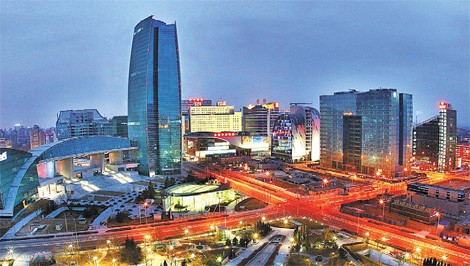China Communications Construction Co. Ltd., a state-owned company, has struck an essential preliminary agreement to develop an industrial park in western Mexico, according to a report by China Daily.
Sources indicate that it could potentially be one of China's biggest investments in Latin America's second largest economy. The agreement, which includes the hosting of Chinese firms, will be signed on Tuesday by the government of Jalisco state and the Chinese company.
According to two officials who requested to remain anonymous, the two sides had already undertaken the task of carrying out a feasibility study to identify a suitable location for the construction.
The current plan is to develop a site that encompasses 500 hectares, with the Jalisco government paying for half of the land. However, expenses for the park's development will solely be shouldered by the Chinese government.
Jalisco, which emerged with minimal damage from the impact of Hurricane Patricia, contains the second biggest city in Mexico, Guadalajara.
How much the Chinese would invest and where the park would be located will depend on a six-month study process, one of the officials said. He also added that formal adoption of the project would also hinge on the agreement by China to send manufacturing firms.
If successful, the industrial park would provide China the chance to supply both Mexican and U.S. markets. It would also aid in mending economic relations between Mexico and China after President Enrique Pena Nieto abruptly cancelled a $3.75 billion Chinese-led high-speed railway project in Mexico last year.
The cancellation caused dismay in Beijing and came right ahead of Pena Nieto's first official state visit to China, which has so far made little foreign direct investment in Mexico.



























